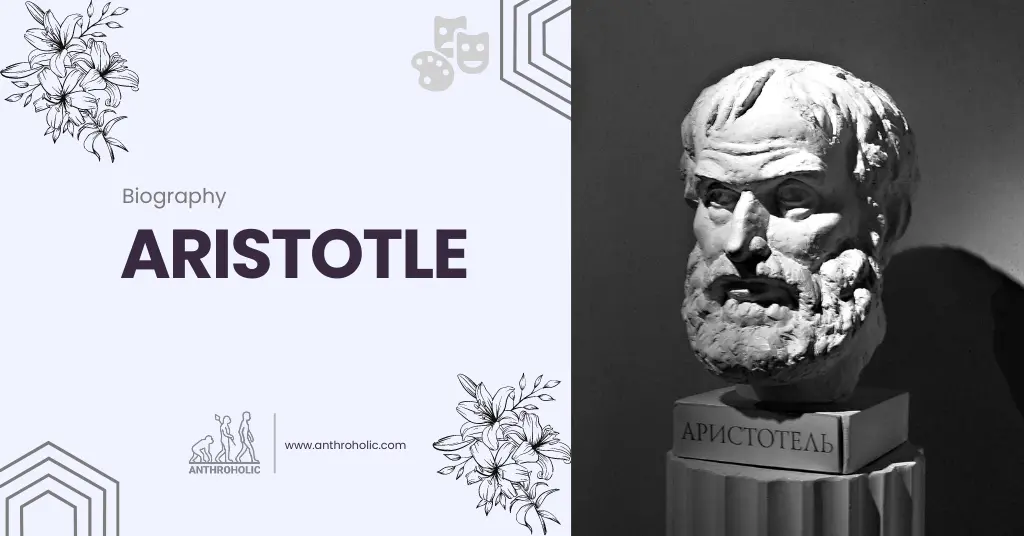AI Answer Evaluation Platform Live Now. Try Free Answer Evaluation Now
Aristotle
Aristotle (384-322 BC) was an ancient Greek philosopher and scientist who is considered one of the most influential thinkers of all time. He made significant contributions to a wide range of fields, including logic, physics, metaphysics, ethics, politics, and rhetoric. His ideas have had a profound impact on Western culture and continue to be studied and debated today.

Early Life and Education
Aristotle was born in Stagira, Chalcidice, Greece. His father, Nicomachus, was the personal physician to King Amyntas III of Macedon. Aristotle received a privileged education and was tutored by some of the most prominent thinkers of his time, including Plato, whom he studied under at the Academy in Athens.
Association with Plato
Aristotle spent 20 years at the Academy, where he became a close friend and follower of Plato. He was deeply influenced by Plato’s philosophy, particularly his theory of Forms. However, Aristotle also began to develop his own unique ideas, which eventually led him to break away from Plato’s school.
Founding the Lyceum
In 335 BC, Aristotle founded his own school in Athens called the Lyceum. The Lyceum was a center for philosophical and scientific research and was attended by students from all over the Greek world. Aristotle taught a wide range of subjects at the Lyceum, including logic, physics, metaphysics, ethics, politics, and rhetoric.
Contributions to Philosophy
Aristotle’s contributions to philosophy are vast and multifaceted. Here are some of his most important ideas:
- Logic: Aristotle developed a system of logic that is still used today. He identified the basic laws of thought and developed methods for reasoning and argumentation.
- Physics: Aristotle developed a comprehensive theory of physics that was based on observation and experimentation. He believed that the universe was made up of four elements: earth, air, fire, and water. He also believed that everything in the universe moved towards its natural place.
- Metaphysics: Aristotle developed a theory of metaphysics, which is the study of reality. He argued that there is one ultimate reality, which he called the Prime Mover. He also believed that the world is made up of substances, which are things that exist in themselves.
- Ethics: Aristotle developed a theory of ethics that is based on the idea of virtue. He believed that the goal of human life is to achieve eudaimonia, which is a state of happiness and well-being. He identified four cardinal virtues: wisdom, courage, justice, and temperance.
- Politics: Aristotle developed a theory of politics that is based on the idea of the city-state. He believed that the city-state is the best form of government and that it is essential for human flourishing. He also developed a theory of justice, which he believed is the foundation of a good society.
- Rhetoric: Aristotle developed a theory of rhetoric, which is the art of persuasion. He believed that rhetoric is an essential tool for effective communication and that it can be used to achieve political and social goals.
Legacy
Aristotle’s ideas had a profound impact on Western culture. His work was translated into Latin in the Middle Ages and became the foundation of medieval philosophy and science. His ideas were also influential in the development of modern science and philosophy.
Aristotle is considered one of the most important thinkers in history. His ideas have had a lasting impact on Western culture and continue to be studied and debated today.
Timeline
- 384 BC: Aristotle is born in Stagira, Chalcidice, Greece.
- 367 BC: Aristotle begins studying at the Academy in Athens.
- 335 BC: Aristotle founds the Lyceum in Athens.
- 322 BC: Aristotle dies in Chalcis, Greece.
Works
Aristotle wrote extensively on a wide range of topics. His works include:
- Organon: A collection of six works on logic.
- Physics: A work on the nature of the physical world.
- Metaphysics: A work on the nature of reality.
- Nicomachean Ethics: A work on the nature of virtue and the good life.
- Politics: A work on the nature of the city-state and the best form of government.
- Rhetoric: A work on the art of persuasion.
Conclusion
Aristotle was one of the most influential thinkers in history. His ideas had a profound impact on Western culture and continue to be studied and debated today. He made significant contributions to a wide range of fields, including logic, physics, metaphysics, ethics, politics, and rhetoric. His work is a testament to his genius and his enduring legacy.




